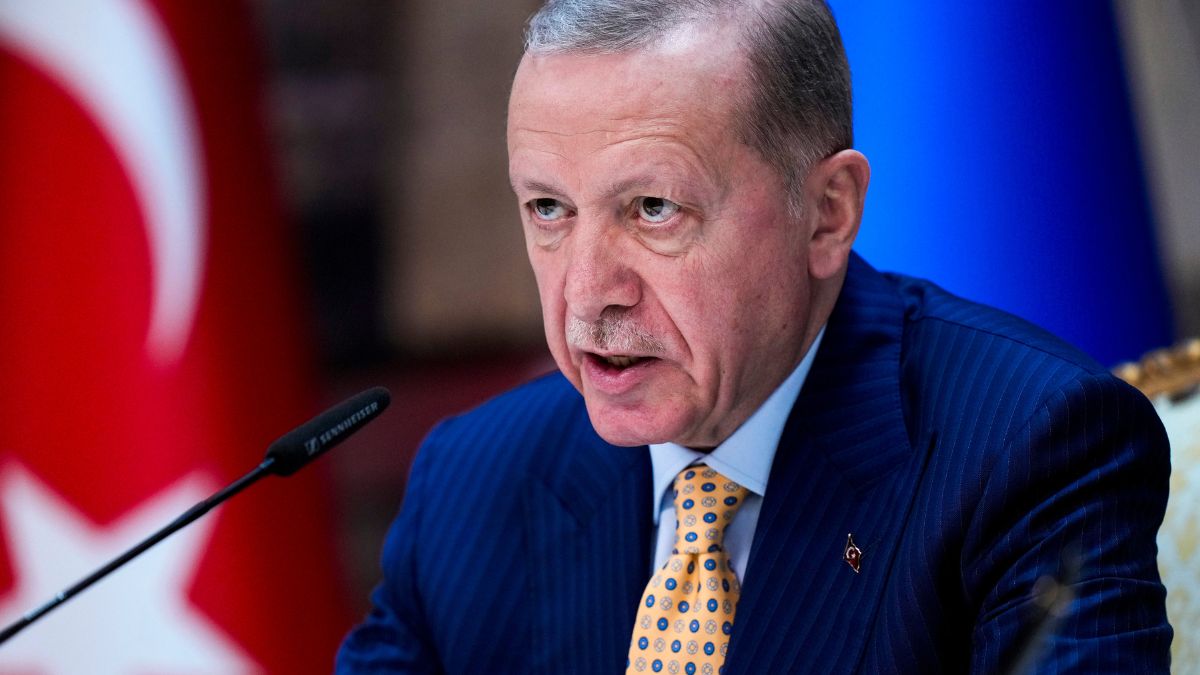Turkey’s decision to replace the term “Central Asia” with “Turkestan” in school textbooks in mid-October this year marks a strategic and ideological shift aligned with Ankara’s broader geopolitical and religious goals. This change is more than a semantic adjustment—it reflects a deliberate effort to reshape regional perceptions and strengthen ties with countries like Russia, China, and the “Central Asian” nations while fostering a shared heritage among Muslim Turkic peoples.
However, this approach diverges from the secular pan-Turkism of nationalist figures like Ziya Gökalp, Yusuf Akçura, and Hüseyin Nihal Atsız. Instead, it adopts a pan-Islamist vision influenced by the ideology of the Muslim Brotherhood.
Historically, pan-Turkism focused on uniting Turkic peoples based on shared ethnic and linguistic ties rooted in a secular and nationalist framework. Turkey’s current policies, however, signify a departure from the abovementioned principles. Under Turkey’s President Recep Tayyip Erdoğan and the Justice and Development Party (AKP), political Islam and pan-Islamism have become integral to both domestic and foreign policies. This shift emerged from internal power consolidations, particularly after the 2016 coup attempt, which allowed the AKP to purge secularists and Gülenists, further embedding its Islamist vision.
Turkey’s geopolitical realignment initially prioritised alliances with Arab nations aligned with the Muslim Brotherhood, such as Ikhwan in Syria, Egypt, Qatar, Libya, Tunisia, Somalia, Algeria, etc. However, regional tensions and shifting dynamics led Ankara to pivot toward Central and Southeast Asia. In these regions, Turkey leverages cultural and religious ties to promote governance models inspired by Sharia and pan-Islamist ideals.
The introduction of “Turkestan” in textbooks underscores Turkey’s efforts to assert cultural and historical connections with Turkic-speaking nations while positioning itself as a leader in the Muslim world. The term evokes unity and solidarity among Turkic peoples, a sentiment Ankara seeks to foster through initiatives like the Organisation of Turkic States (OTS). This cultural diplomacy, however, is intertwined with a broader strategy to promote Islamist ideologies, challenging the secular governance structures prevalent in Central Asia as well as around the world, from Africa to South America.
Impact Shorts
More ShortsTurkey’s soft power tools, such as the Yunus Emre Institute, Turkish Maarif Foundation, and TİKA, play a significant role in this agenda. These organisations advance Turkish culture and education while subtly promoting Islamist narratives. Programs highlighting shared Turkic and Islamic heritage aim to build a collective identity that resonates with Central Asian populations. Scholarships and academic exchanges further align future leaders with Ankara’s ideological vision, while investments in infrastructure and energy projects deepen its influence.
Turkey’s engagement with Islamist elements in Central Asia has also sparked concerns about regional radicalisation. Since the 1980s, radical Islamism has grown, particularly among Uzbeks and Uyghurs. Reports suggest that Turkey has recruited Islamist elements in Central Asia, utilising its intelligence networks to advance strategic goals. This approach underscores Turkey’s ambition to position itself as a leader of the global Islamic community.
Central Asia’s strategic importance, due to its location and resources, makes it a contested region. Turkey emphasises shared cultural and religious ties, distinguishing its approach from the transactional strategies of Russia and China. Russia’s influence remains strong through frameworks like the Eurasian Economic Union (EAEU) and the Collective Security Treaty Organisation (CSTO), while China’s Belt and Road Initiative (BRI) continues to dominate economically. Turkey positions itself as a cultural ally rather than a hegemonic power, but its influence is limited by the entrenched roles of Russia and China, as well as the diverse priorities of Central Asian states.
The Organisation of Turkic States (OTS) is central to Turkey’s strategy in Central Asia and the South Caucasus. The OTS strengthens regional connectivity by promoting cultural, economic, and political collaboration, mainly through initiatives like the Middle Corridor, which links Central Asia to Europe via Turkey. This positions Turkey as a critical actor in trade and energy.
However, Turkey needs help in realising its ambitions. The entrenched influence of Russia and China, the secular governance preferences of Central Asian states, and Turkey’s domestic political and economic vulnerabilities constrain its ability to dominate the region. While Turkey’s pan-Islamist agenda aligns with its ideological goals, navigating the complexities of Central Asia’s geopolitical landscape will require balancing competing priorities and addressing internal limitations.
However, opportunities also exist. Central Asian nations increasingly seek to diversify their partnerships, creating openings for Turkey to strengthen its presence. Turkey can carve out a unique role in the region by promoting a distinct soft power model rooted in shared heritage and pragmatic cooperation.
Turkey’s decision to replace “Central Asia” with “Turkestan” reflects a broader strategy to redefine its regional and global role. By fostering a shared Turkic identity and promoting Islamist governance, Turkey seeks to strengthen its influence in Central Asia and beyond. While this approach leverages cultural and historical connections, it also faces significant geopolitical and ideological challenges. The success of Turkey’s initiatives will depend on its ability to navigate these complexities and sustain its engagement with the region.
Tugrul Keskin is a moderator of the Global China Academic Network. He previously served as a professor and director of the Centre for Global Governance at Shanghai University in China. Mahesh Ranjan Debata teaches at the Centre for Inner Asian Studies, School of International Studies, Jawaharlal Nehru University, New Delhi, India. The views expressed in the above piece are personal and solely those of the authors. They do not necessarily reflect Firstpost’s views.


)

)
)
)
)
)
)
)
)



